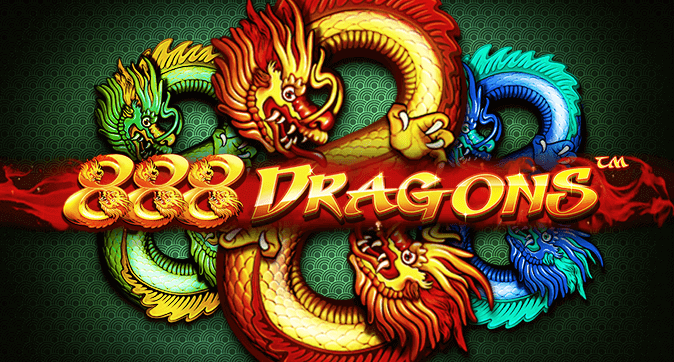
Casino Table Game Etiquette: The Unwritten Rules for Players
Table games in a casino carry their own traditions, rituals, and social codes. While rules of the games are written and clear, the etiquette that surrounds them is often unspoken. Understanding these norms not only shows respect for the dealer and other players but also enhances the overall atmosphere. This article explores the essential aspects of table etiquette, from gestures and communication to the differences between roulette, poker, and blackjack, as well as why behaviour directly influences the quality of the gaming experience.
Core Principles of Behaviour at the Table
The first layer of etiquette involves simple gestures and body language. Players are expected to keep their movements clear and deliberate when placing chips, to avoid confusion or disputes. Tapping the table or verbal confirmations when standing in blackjack, for instance, are small but vital habits that maintain clarity.
Language also plays a central role. Respectful communication with dealers and fellow players is fundamental. Heated arguments, offensive remarks, or attempts to distract others are strongly discouraged. In many casinos, staff will intervene if such behaviour escalates, ensuring fairness for all.
Betting manners matter equally. Players should place wagers before the dealer calls “no more bets” and should avoid touching chips once the round begins. Respecting the rhythm of the game is not just polite but prevents unnecessary disputes and delays.
Practical Examples of Conduct
One of the most visible aspects of etiquette is how chips are handled. Stacking them neatly and avoiding sudden changes once bets are locked prevents errors. Similarly, refraining from reaching across the table or touching others’ chips is seen as an absolute rule.
Attentiveness is another unwritten expectation. Players should be ready to act when their turn comes, avoiding distractions such as mobile phones or unrelated conversations. This keeps the flow steady and shows respect for everyone’s time.
Finally, showing courtesy when winning or losing is important. Excessive celebration can disturb the mood, while frustration displayed too openly may discourage other participants. Maintaining composure is part of being a valued table guest.
Differences Between Roulette, Poker and Blackjack
Although all table games share certain codes, each has specific practices. Roulette demands patience and attentiveness, as multiple players act simultaneously. In poker, the social and psychological elements bring different challenges, while blackjack relies on structured decisions and quick signals.
In roulette, chips are colour-coded to each participant, and it is vital to place them properly without overlapping with others. After the dealer calls the end of betting, players must withdraw their hands from the layout to avoid confusion.
Poker etiquette differs in that the interaction between players is more personal. Respecting the pace of betting rounds, not commenting on ongoing hands, and refraining from “slow rolling” are essential. Blackjack, by contrast, places more emphasis on dealer-player communication through gestures such as hand signals rather than spoken instructions.
Specific Situations in Popular Games
In poker, a common breach is revealing folded cards or discussing potential outcomes during an active hand. This unfairly influences decisions and damages the integrity of play. Silent observation is always the safest approach.
Roulette requires precision with chip placement. Throwing chips across the table or stacking them on unclear spots creates confusion. Properly sliding them forward within the dealer’s reach is the correct method.
Blackjack places emphasis on clarity. For instance, tapping the felt to “hit” or sliding chips forward to double down ensures the dealer and cameras capture the player’s decision unambiguously. Verbal remarks alone are discouraged, as signals are the official standard.

Why Etiquette Shapes the Gaming Atmosphere
Proper behaviour at the table contributes to the collective enjoyment of the session. A respectful environment allows everyone to focus on the excitement of the game rather than distractions caused by disputes or discourtesy.
Dealers, who oversee games, are better able to perform their duties when players respect etiquette. Clear gestures, timely betting, and polite interactions allow them to maintain fairness without unnecessary interruptions or corrections.
Perhaps most importantly, etiquette fosters trust. When participants know that others will follow unspoken rules, the atmosphere becomes more enjoyable, fair, and engaging. This sense of mutual respect is what turns table games into memorable experiences rather than chaotic encounters.
The Long-Term Value of Etiquette
For regular visitors, mastering table etiquette builds a reputation. Dealers and players alike appreciate those who play with respect and patience, which can create a friendlier and more welcoming environment for future visits.
From a practical perspective, proper behaviour also reduces mistakes. Clear betting habits, precise signals, and appropriate communication prevent misunderstandings that might otherwise cost a player financially or cause disputes.
Ultimately, etiquette ensures that table games remain enjoyable for all participants. While rules dictate how the games are played, etiquette defines how the experience is shared, making it a cornerstone of any responsible gaming culture.
Most popular
-
 888 Dragons by Pragmatic Play
888 Dragons by Pragmatic PlayCasino slots are a staple product that attracts users. And there are plenty of quality developments that …
-
 Casino Table Game Etiquette: The Unwritten Rules for Players
Casino Table Game Etiquette: The Unwritten Rules for PlayersTable games in a casino carry their own traditions, rituals, and social codes. While rules of the …
-
 Poker and Mental Health: Staying Focused and Avoiding Burnout
Poker and Mental Health: Staying Focused and Avoiding BurnoutCompetitive poker is often portrayed as a thrilling game of skill and intuition, but behind the scenes, …
